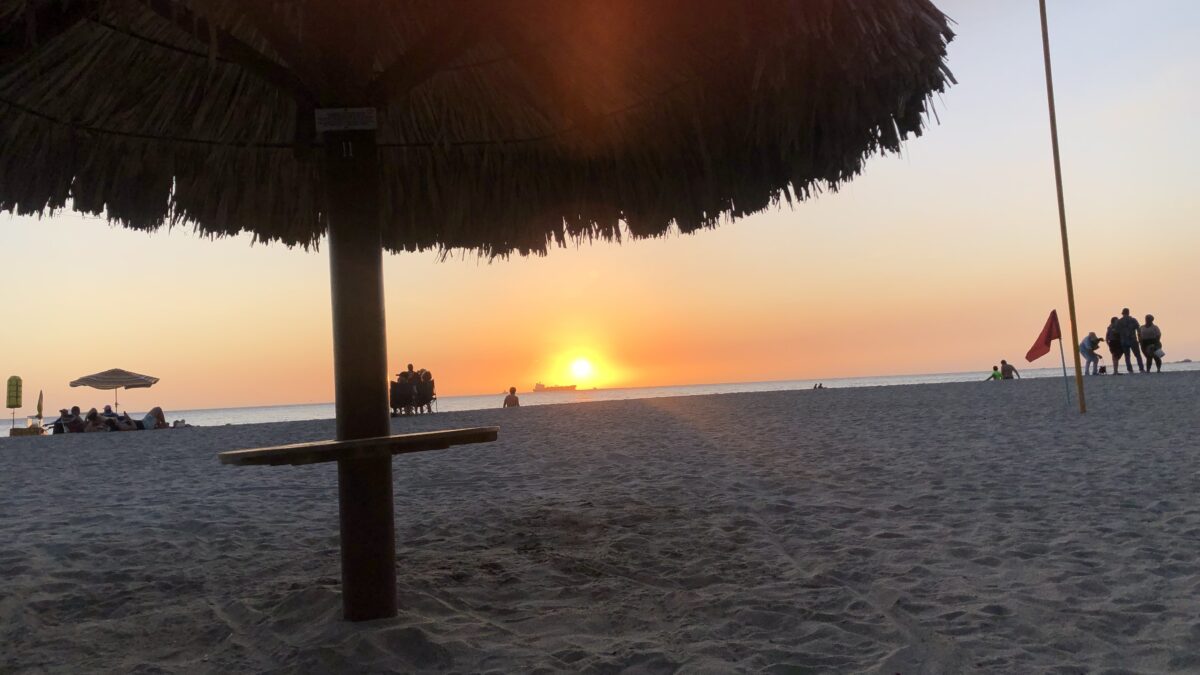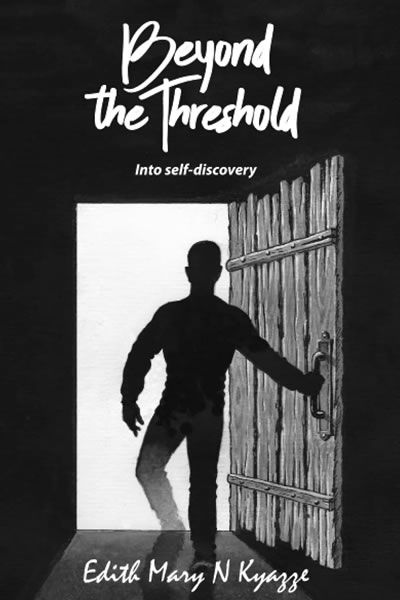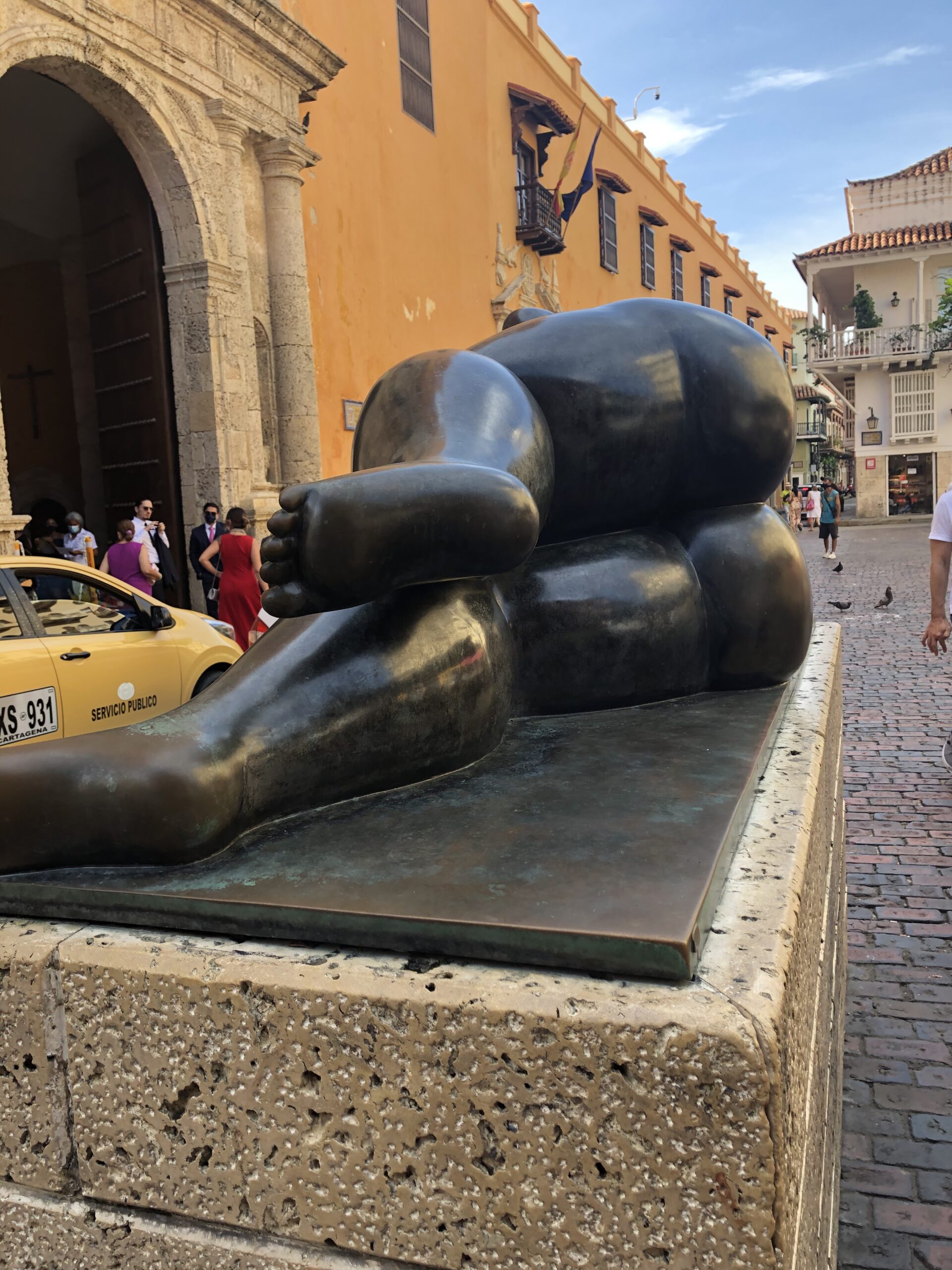
What’s that smell? I wondered, holding my breath and opening my previously closed eyes.
No, it can’t be. Here? In this place? I mean, look where I am. And yet it smells like…
No matter where you are, and for whatever reason, every place you visit, live, or work, a certain smell will identify that place to you. An odour, a scent, the aroma, or a flavour. A reminder of that destination or of what it felt like when you were at that particular point in your life taking you back to a moment that feels like you’re living a memory, bringing back lots of emotions.
Different places have different smells for various reasons; location, microbiome, hygiene, diet, etc. Is it at the sea, in an industrial area, in the mountains, in a city? What cultural activities do the people practice? What’s their way of life?
Our senses are constantly–unconsciously to us–being tickled when we travel. Many times, though, we fail to identify what sense a particular place simulates because we often pay little to no attention, and fail to notice and/or relate a sense to a location.
It’s often when for example, a certain smell elsewhere feels familiar that we’re then reminded of another place; that smell reminds me of that time when we were… you might say.
What does it smell like?
When you walk on the Italian streets, for example, especially in the morning, an inviting and delicious aroma of coffee and croissants will not escape your nostrils, forcing the little Italian in you into the next coffee shop to relax, while enjoying a quick shot of espresso, a cappuccino, or a brioche to your taste.
If you don’t know but happen to be in a coffee shop somewhere in the North of Italy, try the Marocchino-coffee. It’s an amazing taste. Trust me.
In the later hours of the day, many of those streets get filled with mouth-watering flavours of focaccia bread or pizza. Grab a squared piece and savour it walking the narrow, beautiful streets or admiring the piazzas (squares) while enjoying listening to Italian speaakers.
Oak Trees
When I landed at the Orlando International Airport, Florida, and as soon as the jet fuel smell of a cooling airplane engine was at a distance, my nose caught something of an oak tree aroma. I, thereafter, could smell it everywhere.
This smell is probably because of the numerous oak trees in the area with their widespread canopies, some with branches that touch the ground, and others as old as 170 years. It was a beautiful and unique smell that felt like walking in the forest. To date, when I smell oak, it takes me back to a moment when I was enjoying the Disney World rides as if I were a child.
Bonfires
Entebbe International Airport, the main airport of my home country, Uganda is located on Lake Victoria. The major activity on this lake is fishing–some say that fish is now Uganda’s second most important export after coffee, and the fishing industry is estimated to employ from 500,000 to about a million people. It’s a huge industry.
 When you land in Entebbe you might be overwhelmed by the odour of fish but this odour is far from the smell that identifies Uganda. Cooking in Uganda, like in many other countries on the continent, and, unlike many places that use gas or electricity, is still majorly done with coal and wood.
When you land in Entebbe you might be overwhelmed by the odour of fish but this odour is far from the smell that identifies Uganda. Cooking in Uganda, like in many other countries on the continent, and, unlike many places that use gas or electricity, is still majorly done with coal and wood.
This overuse of charcoal and firewood makes Uganda smell like a bonfire.
The smell of burning charcoal is almost inviting saying, the BBQ fire is ready, only missing your red steak to roast and for some; where are my marshmallows? It’s a nostalgic smell that every time I smell burning charcoal, I feel like I’m on the red soil continent. Home. I miss you, Mum.
Rotten Eggs
In Iceland, the land of fire and ice, light and darkness, and home to the most northern capital city in the world, Reykjavik, in many cases, you might think rotten eggs are lying around somewhere.
Iceland is full of erupting geysers, steaming rivers, and hot springs heated by geothermal energy giving off a smell of sulphur. This smell can be daunting at times, but it’s a reminder of how incredible our natural phenomena are. Iceland is a hotbed for volcanic activity.
Many cities are full of smog with little to no fresh air but for many, once you’re a little outside the city centre, the smells change and you can then identify other scents or odours.
Take the capital city of Kenya, Nairobi, for example. Nairobi has a lot of tea plantations around it. The hills are beautifully decorated with various shades of eye-catching greenery, and the countryside is filled with fresh air. Air, that has an inviting aroma of tea leaves; excuse me, sir, where’s my cup of tea, please? You might ask.
But that amazing scenery matching the incredible scents disappears as you get back into the city centre, and into smoke and fog or smog as we know it.
Rickshaws
Pakistan has lots of similarities in smell in many of its cities. Mostly, the smell is a mixture of horse dung, mangoes, and spices, usually varied with mouth-watering aromas and flavours of something being barbecued, fried, or roasted–don’t forget to try the Naan bread, or stopover for a delicious meal of chicken tandoori, chicken tikka, or the real kebab. Delicious.
But the odour that caught me about Pakistan, a reminder of the first city I visited in the country, Peshawar, and the smell that takes me back to a certain point in my life as far as this country is concerned, is that of exhaust fumes.
Fumes, especially left behind by zig-zagging rickshaws, buses, and the constant heavy traffic.
My mother was a diplomat with the UNHCR(United Nations High Commissioner for Refugees) in Peshawar in the early nineties. One day, during our stay at her duty station home, we took a rickshaw to a nearby market to look for and buy some DVDs. We hopped onto a rickshaw. What a fun but horrific ride.
Because, while you scream and hold on to your lives–from the passenger’s point of view–as your driver zigzags around in Pakistani traffic like they’re invisible–you’re thinking; this is the end of me. Meanwhile, your driver assures you that there is no problem. You’ll get to your destination very fast, and very safely. No hassle. So hold on, sit back, relax, and enjoy feeling like you are in a video game.
After a few rides, though, you get used to the hassle; Shhh, don’t tell Mum we took a rickshaw.
Coffee Shops
Have you been to the Sin City with more canals than Venice? I am talking about the Dutch Capital of Amsterdam. Well, if not, you might find incredulous what people say about the smells of the city with more bridges than Paris. Minus the smell of decay, some stagnant water, or sweet aromas of waffles, notoriously, Amsterdam reeks of cannabis that for some people, the odour of pot is the only smell they associate with this dam city founded at the mouth of the Amstel river. Pot is legal in the Netherlands.
The same smell is quite common on many streets of the Canadian city of Toronto where you can smell weed as early as eight in the morning, as it’s common to find, for example, early morning dog walkers smoking pot like it were a simple cigarette.
I remember specifically, while I visited the city in the summer of 2023, two individuals who left an impression on me. One was a little overweight lady with dark glasses and headphones. She was always dressed in black from head to toe. I saw her almost every morning I went to walk in the park, sitting in the same spot and occupying the whole space on the park bench. She would have a paper coffee cup in one hand and her joint in the other. You could smell her weed from meters away. She always looked happy to me.
The other was a gentleman who looked a little creepy to me. He always wore a black winter coat–even if it was summer–left open, and dark black sunglasses. He would stand in the same spot every morning, just him and nature, swinging from side to side and blowing on his pot like, he and the trees around him belonged together. My guess was for him, it was better being amongst the trees, as nature would never judge his weed intake in the early hours of a working day.
But the interesting Toronto (I speak about Toronto because that’s where my experience is) is that, as much as you can smell weed everywhere on their streets, you are not allowed to vape in restaurants or at a bar, even if you’re seated on the outside. Ironical, right?
…sewage. That’s sewage,
I thought looking around. I was standing on the balcony of my 18th-floor hotel apartment enjoying the picture-perfect view outside.
You could hear the constant whooshing of planes taking off and landing, an occasional vroom of a revving sports car down below, the smooth clicker-clack overhead metro was already operational, and somewhere, a chihuahua barked nonstop!
But that smell, here? I mean, look at where I am,
 It was a bright day. The sea at a distance looked overly bright with the sunlight’s reflection. Early morning joggers were already working at it, there were a few delivery bikes in service, but mostly, my view of skyscraper slams was quiet. Saturday early morning in Miami.
It was a bright day. The sea at a distance looked overly bright with the sunlight’s reflection. Early morning joggers were already working at it, there were a few delivery bikes in service, but mostly, my view of skyscraper slams was quiet. Saturday early morning in Miami.
I had put my hands on the metallic rim of the balcony and closed my eyes to take a deep breath. But then I held it to analyse what I was smelling. It was sewage.
Having such alarming smells in the best of places around the world, dream destinations, a bucket list kind of target place, shows the existence of all kinds of untreatable air everywhere in the world, a problem not only faced by poorer countries but that even richer worlds cannot get rid of it their entirety.
Look at the beautiful Italian city with no roads, Venice, for example, with its strong smell of stagnant water–now made better by the draining system. For some people, it’s a disgusting smell. Yet for many of its 30 million annual visitors, that’s just the smell of the canal city.
Airports in the United States have no transfers meaning, passengers with connecting flights have to literary walk out of the airport after passport control, claim their luggage, recheck it in, and then re-enter the terminal and walk to the gate of their next flight.
That’s how once at JFK, with almost six hours of transfer time with my daughters, we decided to hop onto the next train to downtown NYC and visit Time Square. We were excited–who wouldn’t be?
But when you get onto that old New York subway with the cling-clung noise, the almost deem illumination–like they’ve never heard of LED lights–the rustiness of the metal barriers you cross to get to the tube, subway floors that have seen better days–the tiles became almost black, and trash everywhere, the New York subway reeks.
Be it human pee, weed, or rust metal–it smells like old coins, sweat, lots of mixed perfumes, and unwashed bodies, the mixture is overwhelming. However, as soon as you are out of there and onto the streets, that smell immensely changes to other smells including faint sewage.
Impact on us
Many places have that mixture of negative smells from rubbish, exhaust fumes, industrial emissions, gasoline, dust, etc. Smells that show how much human activity has a huge negative impact on us and the air we breathe in. Take the smell of burning fuel in Pakistan, for example, a constant reminder of a problem the country has to fight daily–In fact, Pakistan is one of the most polluted countries in the round.
Think about the bonfire smells of Uganda. As inviting as they might be, they are a sign of how far such a country still has to go to diversify into safer and more modern combustion methods to avoid pollution and the destruction of the country’s beautiful natural resources.
Forests like the Mabira Forest are seizing to exist because people living in poverty are constantly cutting down and burning trees to make charcoal for sale but also, to provide the much-needed domestic energy required in most households.
That said, every place you go to tickles a different sense. It’s up to you to identify what senses you relate to a particular place. In the the hills of Cinque Terre, in Italy for example, you wouldn’t miss the unison noise of the Cicadas or dog day harvest flies. It’s unmistakable. You most likely won’t see these insects but their noise will tickle your hearing senses.
So, have you ever linked a sense to a place you have been to or visited?
By Edith MN Kyazze


https://evolution.Org.ua/
Fastidious response in retturn of this issue with genuine arguments and explaining the whole thing regardin that. https://evolution.Org.ua/